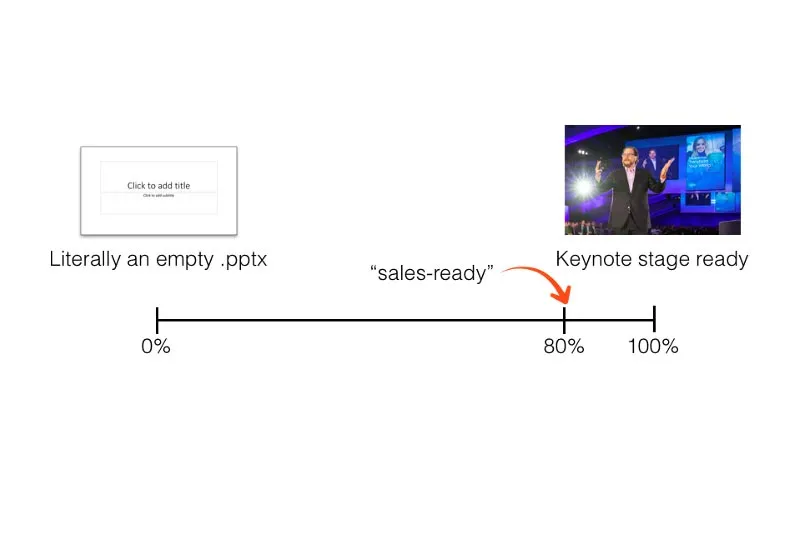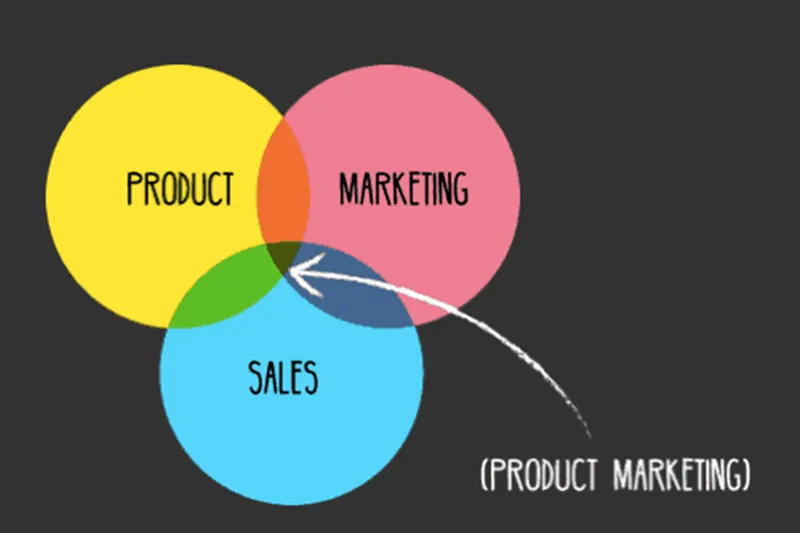11 Things That Make Product Marketing Managers Powerful

Disclaimer: This article will turn your life upside down ;).
On the 4th July (2019), something quite awesome happened. And no, I’m not talking about Independence Day in the States or me winning the lottery (sigh). If you can guess what I’m talking about, then you’re addicted like me ;).
So, I’m talking about Netflix’s release of Stranger Things 3. OH YES. It’s the perfect mix of genres and has brilliant acting, and I could go on and on about my obsession of this show, but alas, that’s not what this blog post is about.
But WHY am I mentioning Stranger Things on a blog about SaaS, UX, product management, and customer success?
Well …
You see, Stranger Things centers on Eleven, a girl born with preternatural abilities, such as having telekinetic and telepathic powers. The narrative of Stranger Things centers on interdimensional portals, scary creatures from these parallel dimensions, and Eleven and her friends trying to defeat these interdimensional threats.
In other words, Eleven has superpowers. So in this article, were going to focus on the six “superpowers” of the product marketing manager. (Yes, I totally just compared you to Eleven, which is very cool).
In our previous posts, we talk about SaaS product managers being the superheroes of a SaaS business. But product marketing managers are superheroes in their own right, too. In fact, it’s quite easy to mix up these terms and use them interchangeably, but while they do overlap in some ways, these two roles focus on different issues associated with a product.
Although product marketing is becoming increasingly common in more “traditional” companies, the profession is mainly associated with SaaS companies. But interestingly enough, product marketing, according to an article by product marketer Jeffrey Vocell on HubSpot, is still somewhat of a mystery to those who want to transition to this role.
Hmm. Mystery, just like Stranger Things.
So let’s get right to it.
(PS: There aren’t really any spoilers to Stranger Things in this post, so you’re safe ;)).

Table of Contents
The Eleven Superpowers of a Product Marketing Manager
Being a product marketing manager is a multi-faceted job and sits at the intersection of marketing, sales, and product. That’s a lot of different departments to deal with. It’s no wonder why you need superpowers. Experienced Product Marketer Hally Pinaud writes that product marketing “greatness is often described in a set of characteristics, rather than a specific skill set, metric, or list of tasks.”
Below, I list 11 “superpowers” of a product marketing manager. So if you’re already in product marketing or looking to transition into this job, these are some of the most important superpowers to have.
Communication and Storytelling
Co-founder and CEO of Aha! Brian de Haff sums up the role of a product marketing manager (in comparison to a product manager) quite nicely:
The product manager is the person responsible for defining, in detail, the ‘why,’ ‘what’ and ‘when’ of the product that the engineering team will build. The product marketing manager is responsible for clearly communicating the ‘why,’ ‘what’ and ‘when’ to the marketplace.
So, communication is one of the major superpowers of a product marketing manager.
In Stranger Things, Eleven manages to escape a laboratory (where is she experimented on) and is subsequently found by three young boys who are searching for their friend, who is trapped in the Upside Down (another dimension). Because Eleven hasn’t had much social interaction in her life, she doesn’t have the social skills to communicate with the boys – in fact, she can barely speak at all. So, over the course of the series, she has to learn and hone her verbal communication skills (as well as her other forms of communication, such as telepathy).
Which means that just like Eleven, product marketing managers need to practice their communication skills. But WHY is communication a crucial supower all product marketing managers MUST have? Well, because as a product marketing manager, you’ll need to:
- Clearly communicate and explain the benefits and value of product features to the customer.
- Give product demos at trade shows, give (exciting) presentations (using product storytelling) to potential and existing customers, and develop marketing material.
- Position the product through creating and telling stories of the product. Stranger Things is intriguing and captivating because it tells a compelling and fantastic story. It’s gripping and it immerses you completely in the world of the characters. So, if you’re able to tell an excellent story about your product, you’re well on your way to success.
- Defining the product for the market in an easy-to-understand way that demonstrates product value and how it addresses the pain points of potential and existing customers.
- Bring the voice of customer into the business.
- Communicate with sales teams by providing them with the relevant knowledge and tools they need to deliver an exceptional demo/ sales pitch.
- Taking technical information and communicating it to other relevant groups in easy-to-understand ways.
- Receive feedback from the market, customers, and sales and communicate this to the product team.
- Conduct customer interviews.
- Brief the press about new products.
Being a Triple Threat
In the entertainment industry, a triple threat typically refers to someone who can sing, dance, and act (like many of the actors on Stranger Things, of course). Relating this to product marketing, you, as a product marketing manager, need to be excellent at content creation (and copywriting), presenting, and being the master of behind-the-scenes work. Essentially, product marketing managers are diverse, and that’s why you love this job.
So, what does being a triple threat entail as a product marketing manager?
Messaging and Writing
In Stranger Things, Eleven is able to communicate/receive various kinds of messages in different ways (extrasensory perception, telepathy, technopathy). Sometimes, she has a specific target that she needs to reach out to/ communicate with.
As a product marketing manager, you’re communicating a specific message to a target market (basically, your script). According to Product Marketer Kevin Wu, messaging in product marketing is “the ability to communicate pain and solutions for a specific persona using the written word”. In this sense, like Eleven’s abilities, a product marketing manager’s writing has to be unique because as Wu says, “it’s all about distilling a message down to its essence and packaging words in a way that will be accepted by a specific group of people”.
Product marketing writing must strike a balance between the user persona’s language and important information, and the message must come across as authentic.
Creating a Presentation Deck
This comes back to being a teacher. You, as a product marketing manager, need to be able to create sales-decks that sales can use when presenting to a customer – and these decks need to communicate a strong message visually.
Product Marketer Kevin Wu talks about creating an 80% deck: 0% is a blank PPT and 100% is what you would present to an extremely large audience after having received creative support from a team. So 80% is what would be sales-ready, and you should be able to create this without help from a creative team or agency.

Creating a Demo
While demos are often given by sales teams, a product marketing manager should also be able to create a demo and deliver it well.
In Stranger Things, the four young boys (Mike, Dustin, Will, and Luke) play the famous fantasy role-playing game Dungeons & Dragons, which means they have to be highly creative, come up with a story, and think outside of the proverbial box.
When you give a demo, you need to concentrate on (once again) telling a story in the demo by focusing on what the pain points of a potential/ existing customers are, why exactly they are painful, and how their product is a solution to these pain points.
So when writing a message to a person or creating a deck – or whatever it may be – you need to leverage your creativity to attract the right user personas through persuasive communication efforts.
Having Competitive Intelligence
Well, it’s pretty obvious that product marketers need to study the market and competition, BUT these days, it requires more than just conducting a SWOT analysis or having a general overview of the competition. You need to be the go-to person for customer knowledge.
You need to study the competition in detail by looking at some of your product’s top competitors individually. What are they doing right? Why are potential customers choosing them over your company?
Send out feedback forms and ask your customers things like: What factors made you choose our product over a competitor’s? What were the convincing features or benefits? Why is our product better? How have we improved? How is our competition’s product better, and what can we do to capitalize on this? Naturally, this also comes down to having excellent research skills and the ability to think analytically and strategically.
Eleven and her friends actually need to study the behavior of the monsters and the nature of the Upside Down. They need to be strategic if they want to stay alive, and they often have to execute these strategies under high pressure. This ultimately gives them the upper hand, as it allows them to understand what the monsters are after and how they function. This helps them to defeat them and close the gate that connects the two interdimensional words.
So, think of the monsters as your competitors ;). Study how the competition is behaving and what drives customers to them. Eventually, with insight and understanding, you can beat the competition with your product marketing superpowers.
Being a Teacher
In one of the episodes in season 2, Eleven meets a girl named Kali, who, like Eleven, has psionic abilities. Kali teaches Eleven how to leverage her powers further, making her even stronger and more in control of her abilities.
As a product marketing manager, you also, in some ways, perform the role of a teacher. This is because you’re responsible for helping sales teams give effective demos, to sell more, and to close more deals.
Basically, you need to ensure that sales is equipped with the right knowledge, know-how, and tools to present your product in the best light. They need the right content, the right positioning information, and the right competitive information (that’s a lot of rights that you’re responsible for).
Moving on to the external customer (the end-user), you also need to give them the right information (via the website, at trade shows, demos, customer meetings) so that they can use this information to find out all they need to know about your product. You need to educate your customers about the product and how they can leverage its full potential.

Stalking
This is a fun one ;). Stranger Things is all about finding the monsters and recognizing what exactly they are after.
As a product marketing manager, you’re responsible for stalking your customers (in highly ethical and legal ways, of course). But by stalking, I just mean observing your customers and their behaviors when it comes to using your product (or your competitor’s product): It’s about seeing things from their perspective. What alternative products are they using? What challenges are they trying to overcome? How are they trying to find a solution to a specific pain point? And what can your product do (and what does it need to become) to solve these pain points?
Get real information on how users are using your product. There are many ways to do this, but an interesting concept I came across is something called exposure hours. According to UX expert Jared Spool, exposure hours relates to “the number of hours each team member is exposed directly to real users interacting with the team’s designs or the team’s competitor’s designs”. You could do this by conducting on-site visits and observing users in the environment in which they work everyday. You can also interview users and conduct usability tests and uncover what their pain points and goals are.
Empathy
We’ve written about having empathy a lot in our posts related to customer success because having empathy is what helps customer success managers connect to their customers. The same holds true for product marketing managers, but not only because they work with customers but because they work with many different teams too.
Above, I spoke about usability tests and conducting user interviews/ doing field visits. These are some great ideas to help you develop empathy – you don’t need to be born with it to have it, so keep that in mind. There’s always opportunity to become more empathetic – work towards to actively listening to your customers’ needs. This will help you develop empathy for their customer pain, which will, in turn, make you an even better product marketer and make your product more valuable.
In Stranger Things, Eleven develops some great empathy skills. She can identify when her friends are in danger/ need help, and will actively do everything in her power to rescue them (so, as a product marketing manager, you can identify your customers’ needs and do everything in your power to contribute to the development of a super product).
Charisma and Influence
Well, as you know by now (even if you don’t watch Stranger Things), Eleven is an inimitable character. But not only because of her superpowers: She also has the ability to adapt to a new life, she is willing to learn, and she has an awesome character arc.
So, as a product marketing manager, you’re also super unique because of the variety of roles you perform. You need to have the ability to set your product apart from the competition, and you have a massive part to play in this.
Product marketing is one of the highest cross-functional roles in a SaaS company. However, there will be employees who don’t report to you directly, but you’ll still need to leverage their skills. This means that you need to lead by influence. In other words, you need to demonstrate your leadership skills and that you are fully capable of meeting objectives and targets and leading teams to help you do so.
According to the Collins online dictionary, “you say that someone has charisma when they can attract, influence, and inspire people by their personal qualities”. It’s a pretty sweet definition and provides a good starting point for perhaps some of the more intrinsic skills a product marketing manager needs to have.
In an interview with CareerSchooled, Product Marketer Shyna Zhang says that “impact and influence is also something that’s hard to achieve within the organization, but critical to the success of PMM … It’s important to be able to make your case, build relationships, and lay the foundation to be able to drive change throughout an organization.”

Combining the Power of Art and Science of Product Marketing
So, all-in-all, there are not many things that a product marketing manager doesn’t do! Being able to deliver the right product at the right time to the right market (that’s a lot of rights) really is a superpower.
And when you combine the superpowers of a product manager with the superpowers of a product marketing manager, you can create a mindblowing-ly awesome product that will have a huge impact on your target market.
In an article on Drift, the author writes that product marketing “is one of the most powerful weapons in your marketing arsenal”, and that it “has the power to help you stand out in a sea of lookalikes”. Actually, like the monsters in Strangers Things actually kill people (no spoilers, I promise), bad product marketing can actually kill your company. Yup. That’s why all SaaS companies need a product marketing superhero.
And that’s why product marketing is pretty much more important than ever. In fact, according to LinkedIn’s Most Promising Jobs of 2019, product marketing is one of the most promising in the US, and based on LinkedIn research, a job as a product marketing manager will come with a high salary and year-over-year growth.
To end my articles, I usually like to leave a few quotes behind. I’ll leave you with these two for this one:
“Product Marketing is the art and science of conveying to people what your product can do for them with the goal of engaging, converting, and retaining.” – Hiten Shah, Co-Founder of Crazy Egg and KISSMetrics.
“Product Marketing is the art of creating desire for your product and understanding your customers so deeply that you can answer two critical questions for them: Why your product and why now?” – Lars Lofgren, Former Director of Growth, KISSMetrics
Interactive step-by-step guidance is a must for SaaS companies.When implementing interactive performance support, you need to consider your strategy and metrics. Join us and our very own CSM Maria del Mar Mitjavila for a free webinar on how you can set yourself up for success with your interactive guidance project.

